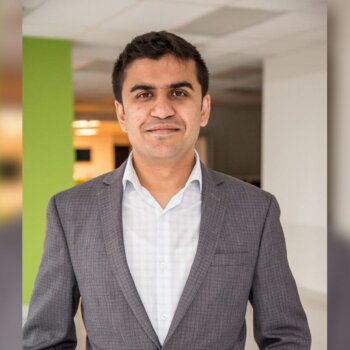Ms. Donna Lee is the current Chairman, Franchising and Licensing Association ( FLA) Singapore.
Ms. Donna Lee is also the Founder and CEO of KinderGolf (www.kindergolf.com), an award winning world-class golf school she started in 2000 to offer golf lessons, products and services from ages 2 onwards.
Donna had completed all the NEP (National Education Program) modules with the United States Ladies Professional Golf Association (LPGA Teaching & Club Professionals Division) (www.lpga.com), and is an invited Advisory Board Member of the Spirit of Golf Foundation based in the USA. She is also a recipient of the coveted Spirit Award for outstanding contributions to advancing children golf learning and development.
Ms. Lee contributes regularly to sports, business and parenting publications, demystifying preschooler golf and helping parents understand how they can best support their children in golf. She has also been interviewed on several radios and TV shows locally and internationally such as Channel News Asia, Channel U and Radio Talk Show OC Family, California.
Ms. Lee’s is also passionate in nurturing business owners. She is a serial entrepreneur and actively mentors other business owners across different industry sectors both in their organizational and personal lives.
Ms. Lee also sits on various boards and actively provides professional business advise to entrepreneurs and those who wish to embark on their entrepreneur journey. Ms. Lee has also been invited to be a speaker in various business forums, talks and business conventions.
Ms. Lee is also oN the board of governors in the Spirit of Enterprise (SOE) and an advisor for the SOE Golf Fundraising 2015, which helps to raise funds to encourage student entrepreneurship and to create a platform to recognize their entrepreneur journey.
Based in Singapore, Ms. Lee travels extensively across Asia.
Ms. Lee graduated with Honours in Economics from the University of Malaya and was previously a consultant with global management consulting firm Accenture before she embarked her entrepreneurial journey.
In your own words what is FLA?
The Franchising and Licensing Association (Singapore) serves as a platform to continually foster among its members, the government and the business community a good understanding of the economic importance and best practise delivery of having a strong franchising and licensing presence in Singapore and internationally.
The objectives of FLA are:-
- to upgrade professionalism as well as to self-regulate members in order to enhance and protect the image of franchising, branding and licensing;
- to assist members improve their skills and techniques in franchising, branding and licensing;
- to enhance the general awareness and understanding by the public of franchising, branding and licensing;
- to provide a forum for members to exchange ideas and explore areas for co-operation;
- liaison with government departments and other relevant authorities and bodies on matters concerning franchising, branding and licensing;
- to establish and maintain affiliations and/or co-operation with relevant organizations globally;
- to educate members in protecting, developing and marketing their intellectual property and technology.
Could you walk us through the process of franchising/ licensing for a business?
In order to start to franchise/license one need to understand how it works and if it is suitable for one’s kind of business. Being franchise/license ready is important. The key it to be able to answer the following:
- Do you have a franchisable business?
- Why do you need to franchise if you have enough funds to open your own company owned stores
- Is your current management team ready to support a franchise structure
- Do you have well documented operations procedures and processes
- Is your business difficult to replicate?
- Do you own your trademark / IP ? Are you protected globally?
Also, prior to franchising, you will at least need the following in place:
- Legal Documents ( e.g franchise agreements, term sheets, license agreements etc)
- Operations Manual and Training Manual
- Marketing Collaterals & Branding strategy
- 4.Franchise Team ( support and business development)
What are some of the difficulties a business may face when it comes to franchising & licensing?
The most challenging part of franchising and licensing is finding the right franchisee and licensee. Communication breakdown is usually the main reason for most franchise dispute and legal battles. Setting, understanding and managing the expectations between franchisor/licensor and franchisee/licensee is key to the success of any franchise/license business.
The ability to adapt to any local culture can also be a challenge, as not all business concept can be successful in every country at any one point in time. Knowing if the local market is ready for the franchise concept/business is also key in having a successful franchise (E.g Is the market ready for your franchise concept? Is the market open to pay such a price for your services/products? Are ready local workforce to deliver your concept?
How does franchising/ licensing make a business stand out against its competition?
There are several ways in which franchising/ licensing can help make a business stand out.
A franchise/license business will have a service/products that has been established in the market place, and one of a high standard. Continued research and development would have ensured service/product relavence and marketability in that industry.
In a franchise business, stores will have a proven and similar concepts and design layout. This will help the public to easily recognise and associate the business with its established branding immediately.
Franchisees will typically commit to a standard marketing fee per annum. The franchisor will also have a certain budget to help respective franchisees in their local marketing. This will create more brand awareness for every franchised unit compared to competitors who have limited budget and are not in franchising.
Economics of scale achieved through franchising leads to better profitability and sustainability over time.
What can you tell us about the industry? Have you developed any industry insights that you could share?
The franchising industry has grown rapidly thoughout the world. People in Asia are more aware of this type of business model compared to 5 to 10 years ago. You can see more emphasis on franchise and license education and training held around this part of the world as well. People are more ready to buy franchises and licenses from both local and overseas providers. More entrepreneurs are also looking into moving part of their brands or business division into this space. It helps to generate more revenue for any business owner in a short period of time and also indirectly recruits other business enthusiast to be part of the growing francising and licensing businesses.
More investors and private equity funds are looking into this area where they can buy businesses that can be successfully replicated globally in a short period of time. The demand for a proven franchise business has increased.
What is the future of the industry?
The future of the industry is bright and growing in many sense.
Franchising and Licensing is a great business model for many types of businesses. It requires businesses to streamline and put into place proper processes, formalize training and way to communicate within an organization.
There will be more franchised and licensed businesses coming into the market as this model helps businesses owners to expand faster. Nowadays, there are increased demands in this business model. As long as the business is suitable to be franchised, it can bring a company globally in a much faster way.
You will see more licensed businesses as well in the coming years. Business owners and the general public will be more aware of franchised businesses in this region plus the education of such concept has garnered more participation from the public and business sector.
Of late, you would have known that there are many franchise shows being held every year throughout the world especially in Asia and Singapore.
What do you think about being an entrepreneur in Asia? Is it harder or easier, why?
Every entrepreneur has his or her own views about entrepreneurship. One needs to be able to be innovative, adaptable, understand trends and culture, be able to communicate well and have a wide global network. Every entrepreneur needs to be able to understand and respect the different local cultures across Asia and have a global mindset and savy with technology.
What is your opinion on Asian entrepreneurship vs Western entrepreneurship?
Entrepreneuship is genericly the same throughout the world. In many ways, most share the same principles and rules. However, the main difference between the two is that Asian entrepreneurs will be required to adapt to various cultures and different languages.
What is your definition of success?
When a person is sucessful, one needs to remain humble and make a positive impact in the lives of others. Success is also when you are able to find happiness in balancing what you do for a living and what you do with those whom you love.
Why did you decide to become an entrepreneur?
I decided to become an entrepreneur to be able to contribute and make a difference in an industry, persuing a dream/passion and making it happen. I have always had the passion for business and golf.
In your opinion, what are the keys to Franchising & Licensing success?
Below are a few key contibuting factors to Franchising and Licensing success:
- Good and healthy relationship between franchisor and franchisees; licensor and licensees.
- A good business model which is easily replicable and sustainable.
- A business that can innovate and yet be able to keep up with the changing demands in the market.
- Good and strong franchise development team that takes care of all franchisees and licensees
- Strong and clear legal documentation e.g franchise agreements, etc
- Ability to customize and understand franchise needs and market needs globally.
- Solid documentations and good customer service
- Flexibility of franchisor/licensor in adapting to any local environment
- Solid understanding on various franchise market in every country.





























